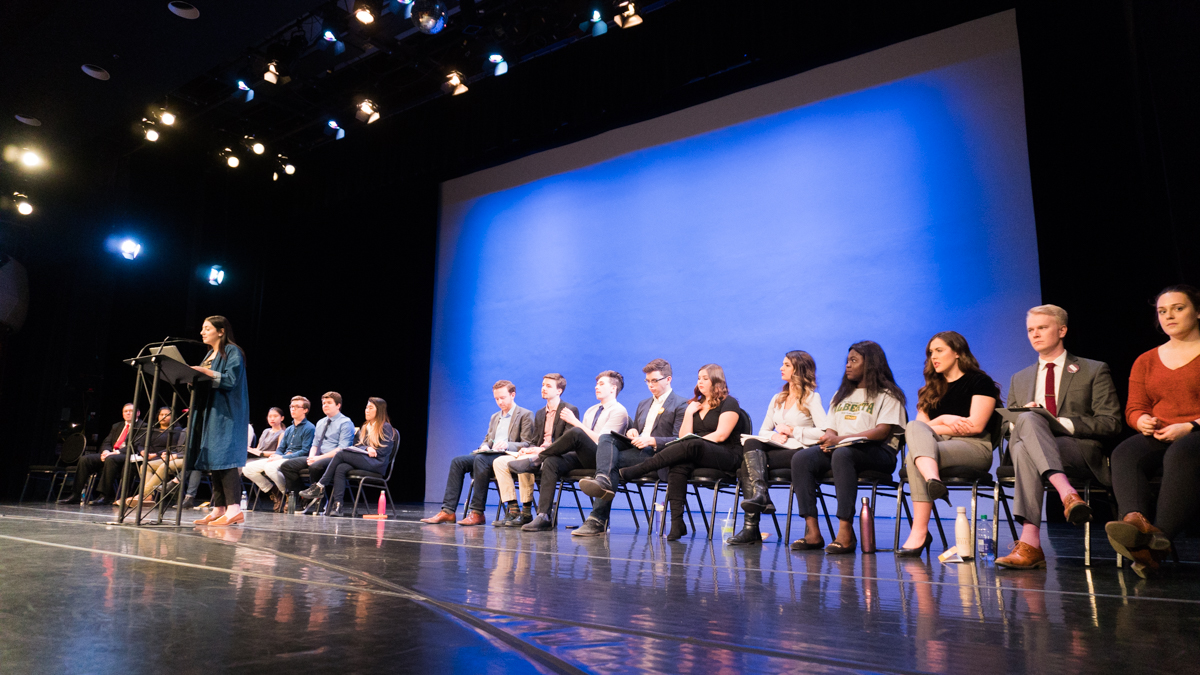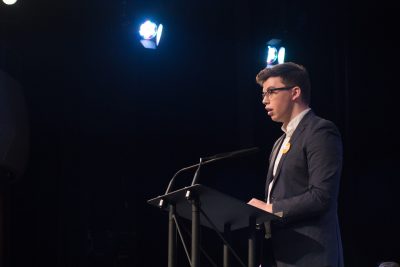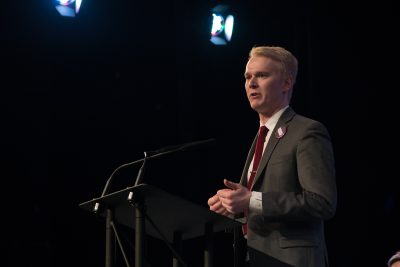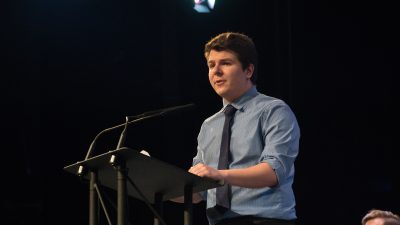Internal and external priorities clash in presidential race
 Richard Bagan
Richard BaganOver deafening screeches from the theatre’s sound system, the three presidential candidates made their second-last pitch to voters at the Myer Horowitz forum with the same messages they’ve been using throughout the campaign.
As all three candidates are current vice-presidents in the Students’ Union’s executive, much of their messaging relied on accomplishments over the past year. Both candidates Shane Scott, the current vice-president (academic) and Ilya Ushakov, the current vice-president (student life), focused on internal priorities on campus, whereas Reed Larsen, the current vice-president (external), asked voters once who they wanted sitting across the table from Rachel Notley or Jason Kenney.

One question asked the candidates to reflect on their biggest failures during their time as a Students’ Union executive. Scott said his failure to engage more with marginalized communities during GovWeek was his biggest regret.
“We could’ve done a lot more to reach out to LGBTQ communities, Indigenous communities and a number of others,” he said. “It really is a failure and it’s something I’ve learned a lot from.”
Ushakov said he wished details around the mental health funding the University of Alberta received in September were made clearer, as the lack of a funding increase meant the university would be forced to cut back on mental health services.
“Our university spoke about (the funding announcement) as it was great news. It wasn’t,” Ushakov said. “This is something I’m really ashamed of because I didn’t see this and we didn’t see this as the university and the government was telling us different things.”

Larsen also wished the Students’ Union pushed for more mental health funding. He said he also regrets not being as vocal as he could have in his opposition to Bill 5 when the legislation was being debated in Students’ Council.
“I think more could’ve been done. I thought that we could’ve had more of a consensual agreement at the end of the day,” Larsen said.
Candidates also discussed how they would make themselves more accessible to the student body. They agreed that the Students’ Union’s offices on the second floor of the Students’ Union Building can be intimidating for some students. All three said they’d want to hold regular office hours away from their offices, and in bars such as Dewey’s or Room at the Top, while Scott said he wanted to look into doing faculty-specific office hours.
Another question came from Gateway columnist Enrique Marroquin who asked if the candidates would consider organizing a protest to push their agendas, adding that protesting is “what unions do.” Both Larsen and Ushakov said they’d consider a protest, citing issues like the impending increase in international student tuition, as well as the Alberta New Democratic Party’s delayed tuition review. Ushakov also added that the Students’ Union isn’t the same as a labour union.
Scott said he’d consider collective action but emphasized involving other members of the community like local media.

The final question directed to the presidential race came from Ben Angus, president of the Organization for Arts Students and Interdisciplinary Studies (OASIS), who asked if the candidates would direct the vice-presidents in their team to reach out to faculty associations. Angus added that in his time in OASIS, he largely dealt current vice-president (academic) Scott, but had little contact with president Marina Bannister and the other vice-presidents.
Ushakov said contact with faculty associations should fall within the vice-president (academic)’s jurisdiction and that he would “keep the system the same.” Larsen, on the other hand, said there is room for the other vice-presidents to support faculty associations. Scott also agreed with the suggestion, calling the current situation “unacceptable’ and added that it’s the president’s job to set the tone for the executive team.




